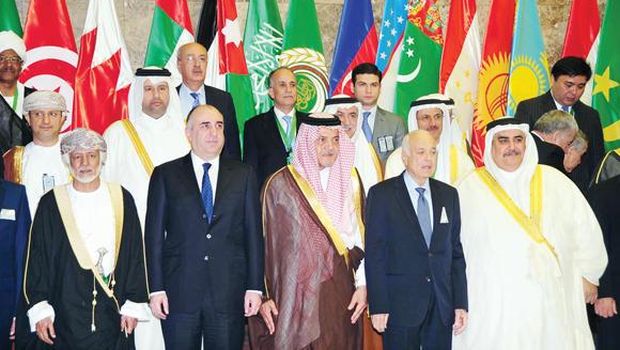
Foreign Minister Prince Saud Al-Faisal with his counterparts at the first Arab Economic and Cooperation Forum with Central Asia and Azerbaijan in Riyadh on Tuesday. (SPA)
On Tuesday, Saudi Arabia’s Foreign Minister, Prince Saud Al-Faisal, said Riyadh had invited Iran’s foreign minister, Mohamed Javad Zarif, to visit the kingdom.
“Any time that [Zarif] sees fit to come, we are willing to receive him. Iran is a neighbor, we have relations with them and we will negotiate with them, we will talk with them,” he said.
Sunni Muslim Saudi Arabia is a leading backer of rebels fighting Syrian President Bashar Al-Assad, who is a close ally of the kingdom’s main rival, Shi’ite Muslim power Iran.
“A written invitation has not been received, but a visit between the foreign ministers of the two countries is on the Islamic Republic of Iran’s agenda,” IRNA cited Abdollahian as saying.
“We welcome holding talks and meeting with Riyadh to resolve regional problems, remove misunderstandings and promote bilateral relations.”
Iranian President Hassan Rouhani has adopted a conciliatory tone towards Tehran’s neighbors since taking office last year, but while Zarif has visited other Gulf Arab states, he has not yet been to Saudi Arabia.
Rapprochement between the two countries would have ramifications across the Middle East, potentially cooling political and military struggles in Syria, Iraq, Lebanon, Bahrain and Yemen.
Abdollahian, deputy foreign minister for Arab and African Affairs, told Reuters in April that he had hoped to have talks in a month or so with Saudi Arabia to address their differences about the Middle East.
